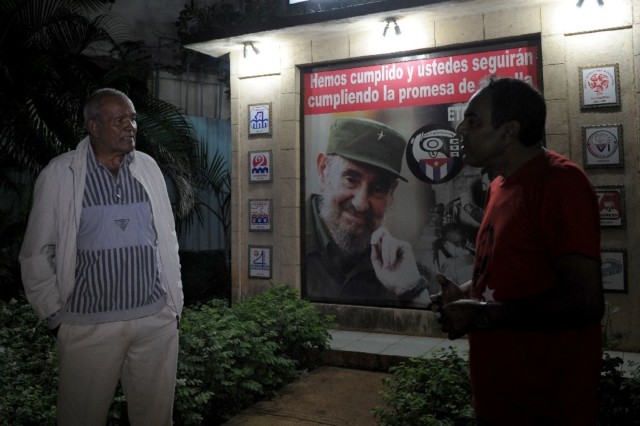Cubans will likely forever remember where they were when Fidel Castro’s death was announced. The music stopped across the dance-happy city and people rushed to awaken loved ones with the news.
Parties shut down and the bustling streets emptied after President Raul Castro, Fidel’s 85 year-old younger brother, made the announcement on state television around midnight Friday.
“Everyone was stunned. It was a very sad moment,” said Yaimara Gomez, who was working in a hotel at the time.
Unlike various occasions over the years, this time it was not a hoax: the man most Cubans grown up with as their country’s leader had died.
“With great pain I appear before you to inform our people and our friends in the Americas and the world that today, November 25 at 10:29 pm, the Commander in Chief of the Cuban Revolution, Fidel Castro, passed away,” the president said.
He gave no details of the cause or circumstances of the death. It was assumed Castro died at his Havana home where he lived after stepping aside from power in 2006 following intestinal surgery.
Car washer Marco Antonio Diez, 20, was out at a party when the music suddenly stopped.
“I went home and woke up everyone, saying: ‘Fidel has died,'” he told AFP. “My mother was astonished.”
‘Like losing a father’
As the news spread, crowds danced and celebrated in the streets of Miami, home to the largest Cuban exile community and their descendants.
But in Havana, locals mourned.
“Losing Fidel is like losing a father — the guide, the beacon of this revolution,” said Michel Rodriguez, a 42-year-old baker.
He was still in his shop late at night when he heard the news on the radio.
The government decreed nine days of mourning and ordered flags to be flown at half-mast.
Castro’s ashes will be buried in the historic southeastern city of Santiago de Cuba on December 4 after a four-day procession through the country, it added.
Santiago was the scene of Castro’s ill-fated first revolution attempt in 1953.
As the news spread around the world, local media seemed taken by surprise: even the state newspaper Granma took about five hours to put the story on its website.
‘Never forgotten’
Castro was loathed by many for stifling dissent, but loved by many others for providing free universal healthcare and education.
He came to power in 1959 as a black-bearded, cigar-chomping 32-year-old in a revolution against former dictator Fulgencio Batista.
Seventy percent of people in this island of 11 million people have known no other leader than Fidel.
“I was born under this revolution and I am truly sad,” Micaela Consuegra, a street-sweeper of 55.
“He was a unique man, with his faults and his virtues. It is a great loss. He is a man who will never be forgotten, by his friends or his enemies.”
Blanca Cabrera, a 56-year-old housewife, came out into her garden to smoke a cigarette after hearing the news.
“It is hard to believe that Fidel has gone,” she told AFP, her face clearly showing her distress.
She recalled Castro’s last public speech, to the Communist Party congress earlier this year, when he forecast that his “turn” to pass away was coming.
“Soon I will end up like everyone does,” Castro said at the congress in April.
“He prepared the people for this moment,” Cabrera said.
“But he will still be with us for years to come. That soothes the pain.”
Story by AFP.
 CGTN America
CGTN America
 Cubans pictured in Havana early on November 26, 2016 after the news that Cuban revolutionary icon Fidel Castro died late Friday (AFP Photo/Yamil Lage)
Cubans pictured in Havana early on November 26, 2016 after the news that Cuban revolutionary icon Fidel Castro died late Friday (AFP Photo/Yamil Lage)
